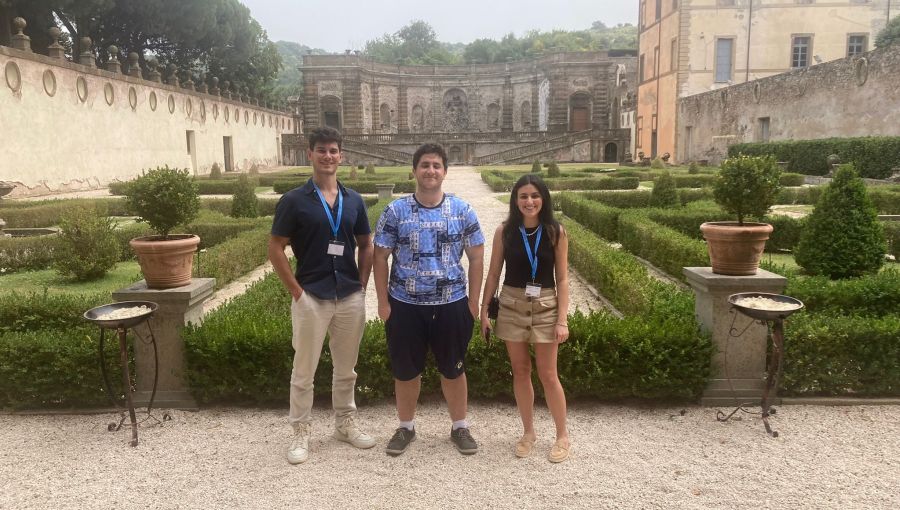Alumnus Giacomo Di Capua Speaks at the UN General Assembly
JCU alumnus Giacomo Di Capua, Youth Delegate to the UN for Italy, addressed the 3rd Committee of the United Nations General Assembly on September 29, 2023. He delivered a speech advocating for the inclusion of youth voices in climate action and the intersectional development of societies.

Giacomo graduated from JCU with a B.A. in International Affairs in 2020 and a B.A. in Business Administration in 2021, and he was the Valedictorian of his class. His journey towards becoming a UN Youth Delegate and an environmental advocate began with his academic interests and endeavors, including serving as President of the Grassroots Club. Giacomo has continued to provide strategic support for sustainability initiatives at JCU, and he is a part of the selection committee of the Triggering Change Competition. Currently, Giacomo is pursuing a Master of Philosophy in Climate Health Economics at the Technological University of Dublin and a Master’s in Sustainable Development at SIOI – Società Italiana per l’Organizzazione Internazionale (Italian Society for International Organization).
Giacomo’s Speech at the UN
During his address at the United Nations, Giacomo spoke about the pressing issue of climate change and how it impacts the rights of young individuals. He highlighted the consequences of climate change such as heatwaves, droughts, and wildfires, which endanger communities and jeopardize social development.
“Today, lack of access and participation in multilateral decision-making is still a reality for youth globally, a sobering picture that challenges our very notion of youth participation,” he said. He emphasized that youth must play an active role in addressing climate change and achieving the United Nations Agenda 2030 Sustainable Development Goals. He also highlighted the need to build intergenerational leadership, a key step in achieving sustainable development.
The core of Giacomo’s message was the idea that climate action should be a catalyst for addressing the interconnected challenges of poverty, gender inequality, and education among young people. He emphasized the fact that empowering young people should be a systematic goal of climate initiatives. He mentioned Italy’s Youth4Climate initiative as an example, where over 400 young advocates were given a seat at the table alongside delegates from 40 different countries.
“Now it is time to start building transnational and centrally funded structures to enhance the capacity of young people, especially those in the global South, to become leaders and not just agents of change,” Giacomo continued. His vision is clear: youth should be at the heart of the solution to climate change. To achieve inclusive and sustainable social development, we need global youth networks and funding for youth delegations from all regions.
(Davide Ebraheem)





